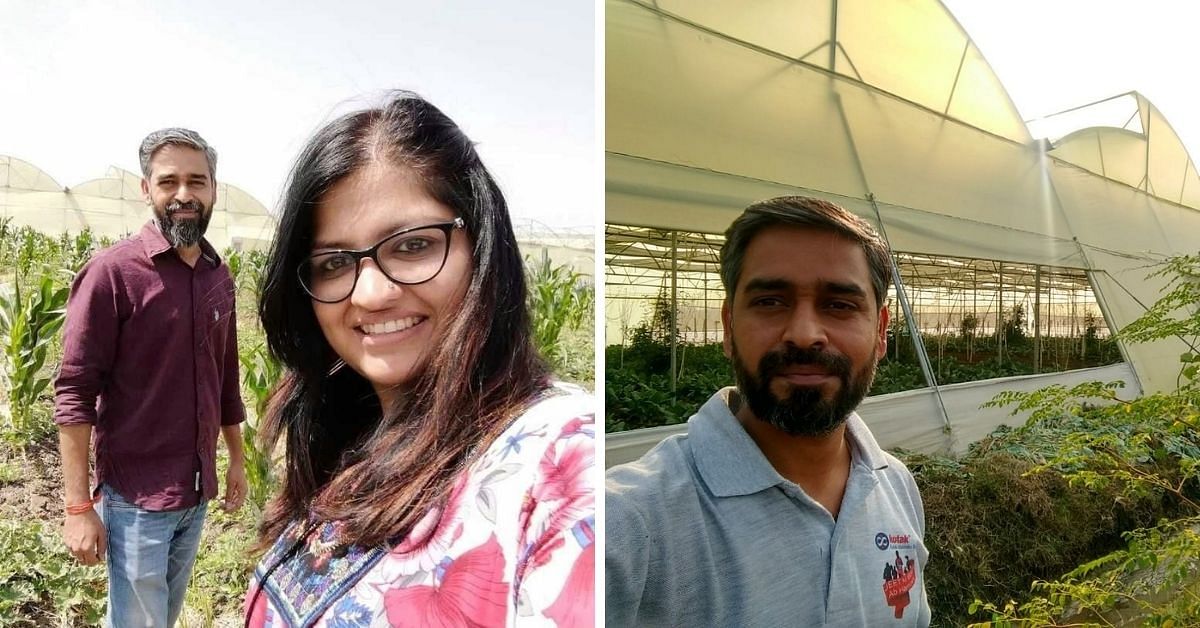‘ORur biggest achievements are when customers say they feel healthier, and when our farmers say they can now give a better life to their children, and our eight-year-old daughter said that she wants to become a farmer, just like her Mamma-Papa ,’ said Prateeksha Sharma with a big smile.
These achievements are all thanks to ‘Green and Grains’, a ‘Farm-to-Fork’ business model in which partner farmers are trained to manage production on their land, and their organic produce is delivered to customers’ doorstep.
However, the journey was not easy for the banker-turned-farmer couple, Prateeksha and Prateek Sharma.
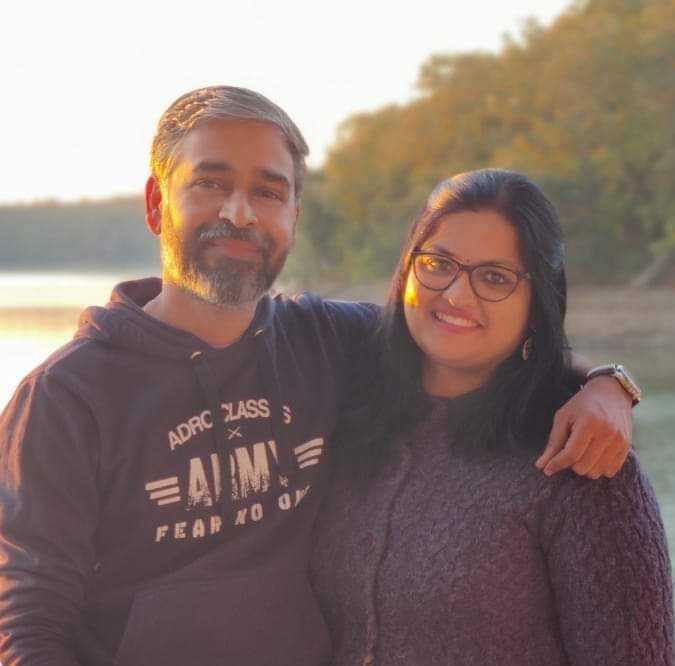
Seeds of Goodwill
It all began in 1983 in a small village called Dolariya in the Hoshangabad district of Madhya Pradesh. Prateek’s father, Praveen Sharma, a postgraduate in English, somehow collected foreign literature on modern farming methods for years and began selling farming equipment.
Praveen always pushed for the development of the farming community as a whole during his dealings, and that’s where the seed of ‘collective good’ was sown in Prateek’s mind. ‘I still have the books on Australian and European farming methods gathered by my father. I don’t know how I managed to get these staying in a remote village,’ said Prateek.
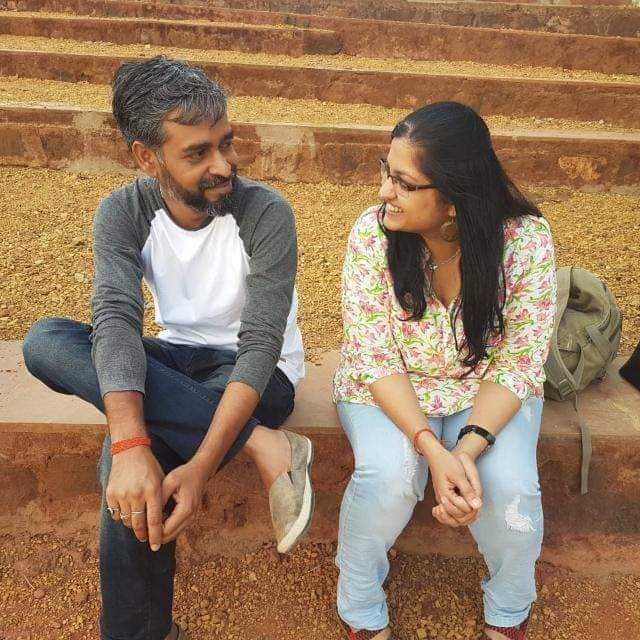
The Rat Race
Things changed in 2003 when Prateek lost his father. Prateek had just graduated at the time, and instead of continuing his father’s business, he decided to pursue an MBA and take up a job in the banking sector.
Prateeksha, on the other hand, is an IAS officer’s daughter and always wanted to make a difference in others’ lives. But farming was never on her mind. ‘Being from a service class family, I always thought farming was not the job of the educated, just like most people in cities think,’ said Prateeksha.
But a spark for social service remained in them both, buried under their ever-growing banking career at Kotak Mahindra. This spark burst into a flame when their daughter Mihika was born. They researched good food habits and realized how difficult it was to find the right food in a world where chemically enhanced farming is the norm. The search took Prateek back to his village from him. The couple took a transfer to Bhopal, and Prateek became a weekend farmer in his village, where he built a polyhouse.
‘Yes, it was tiring. I was looking after four states then and had to travel for my job frequently. Still, I would drive down to my village every weekend and work on my farm,’ said Prateek.
Every Mistake Is a Lesson
Building a polyhouse, using all their savings, was their biggest mistake, according to this couple. The first year was a disaster. But it also made them understand the major issues of farmers.
1. A communication gap between policymakers and farmers who did not speak the same language.
2. An expensive cycle of buying seeds, fertilizers and pesticides to make chemically enhanced farming work.
3. Do not hold over the marketing of their own produce.
Prateek believed he could overcome the first issue by becoming the farmers’ voice to the authorities. He dealt with the second one by farming organically and gathering as much knowledge about it as he could. To do this, he began by visiting and learning from the best organic farmers in the country. I have also started learning the science behind farming. He quickly realized that there wasn’t a standard method that worked for every farm, soil, and farmer. So Prateek eventually came up with his own methods to fit his surroundings.
‘Marketing’ could only be tackled if Prateek could completely ditch middlemen, remove the dependency on ‘mandis’, and build a farm-to-fork system.
This was not possible for a single farmer. Hence, in 2015, apart from growing vegetables on his own 5.5-acre organic farm, he partnered with an FPO, the Kalpavalli Greens Producer Company Ltd., with twelve more farmers. By 2016, Prateek had learned enough to quit his job and become a full-time farmer. However, Prateeksha kept working as a banker to support him financially.
Prateek now began to guide farmers on how to develop their soil, what to grow and when to grow. Then, he would pick up the produce from the farms, get them to Bhopal, grade, clean and pack them and deliver them to the customers’ doorsteps in his car. Initially, he had a few customers in his own building society and Prateeksha’s parents’ building society. But word spread, and Prateek was soon a ‘family farmer’ to fifty families.
But delivering only vegetables was not enough. There were at least 50 items that a family needed, and the model would become successful only if the basket had all of these. But for this, bigger infrastructure and capital was required. The couple had no idea where they would get that.
The Turning Point
‘Quitting my job was not easy. We all know that farming is a totally unglamorous field, and leaving a lucrative banking career for it was almost seen as madness for many. But our corporate friends always supported us. They would tell us how they are proud of us for doing something they wish to do but did not have the courage to do,’ said Prateeksha.
One of these friends, Amit Jambulkar, wrote to The Better India about Prateek.
‘It was August 2017 when I got a call from Manabi from The Better India. I was thrilled as it was my first media interaction. She asked me for a good time to speak. But I just parked my car then and there and spoke to her for the next 45 minutes,’ said Prateek.
The article was read by the Start-up Incubation Center at IIM Calcutta (IIM Calcutta Innovation Park; IIMCIP), and they contacted Prateek. They went through the selection process, got funding, and this helped them set up their startup company, Vishalya Foods and Farms Pvt Ltd. Then, they launched their products under the brand name – Green and Grains.
IIM Calcutta also mentored, trained, helped in capacity building, exposure visits and also the very critical ‘Seed Funding’ under the INVENT program of the Government of India. Thus, Green and Grains became a registered start-up under the Start-up India program and Start-up Program for the state of Madhya Pradesh.
‘Under this program, we were looking for passionate people who could build a sustainable social enterprise. Prateek and Prateeksha’s model was a perfect fit for this criteria. The best thing about them was the kind of resilience and dedication they had towards this cause. They were working straight from their hearts, which was evident from their customer engagement,’ said Gaurav Kapoor, chief business officer, IIM Calcutta Innovation Park.
Next Level, Next Challenge, More Farmers
With the seed fund from IIM Calcutta, Green and Grains could buy their first truck and a bigger warehouse. The next step was to add all the items needed by a household every week in their basket.
Thus, Prateek gathered more farmers who produced grains, spices and fruits too. In addition, they were personally trained by Green and Grains to grow good quality organic products.
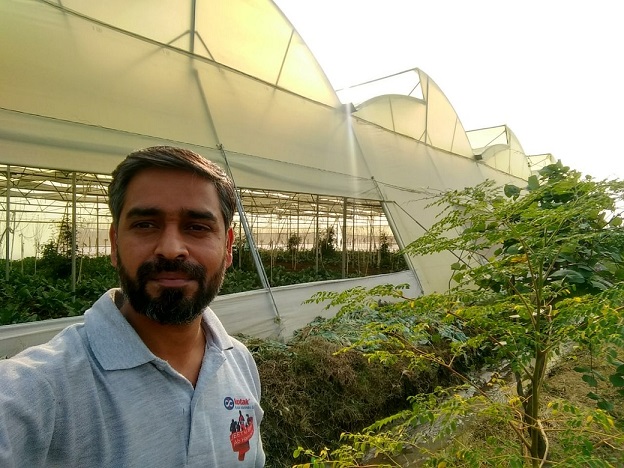
‘Living the “start-up life” is like being on a roller coaster ride. It is emotionally and physically draining at times. But we sailed through our highs and lows with unconditional support from my mom and dad, not only emotionally but in operations as well. For example, mom would make a variety of pickles, sauces, chai masala, garam masala for us, using the surplus stock we had so that there was no wastage and our customers just loved these,’ added Prateeksha.
‘It is so much more convenient for us farmers. We just have to look after production, which is also supported by Prateek bhai. The rest of the tension is taken by Green and Grains. Before this, we had to take our produce to the mandis ourselves. There was no fixed price and no guarantee of sales. Here, the Green and Grains team comes to our farm to pick up our produce. They give us fixed prices and manage our farm waste too. What else do we need? We can’t even think of going back to the old cycle again,’ said Rakesh Gour, a farmer from Dharamkundi who has been associated with Green and Grains for the past two years.
This growth also allowed Prateeksha to quit her job as well. She had gained experience in operations and customer handling from her banking career of ten years. Prateek completely took care of the production, and Prateeksha looked after the post-production part, right from segregation, grading to delivery.
With strong support from their mentor, Gaurav and their loyal customers, they kept going. But by February 2020, they were almost broke due to the high working capital involved in the business. The couple took on the losses themselves and never let the farmers or the customers suffer.
The End or The Beginning?
On 12 February 2020, Prateek put out a post on Facebook that he would start a farm training program. Many thought it was just another side hustle. But this was Prateek’s last attempt to save Green and Grains. ‘That was the toughest day of our lives. This was our last hope. If this did not work, we had no way out other than to quit farming. It was not just about us. We could have gone back to our corporate lives again. But what about the farmers associated with us? We knew their life was getting better, and we could make this difference in so many other lives, only if we had money,’ said the couple.
Prateek and Prateeksha may not have made it work. But suddenly, a nationwide lockdown was announced during the first wave of COVID back in March 2020. Green and Grains was exactly the model that was required during the lockdown.
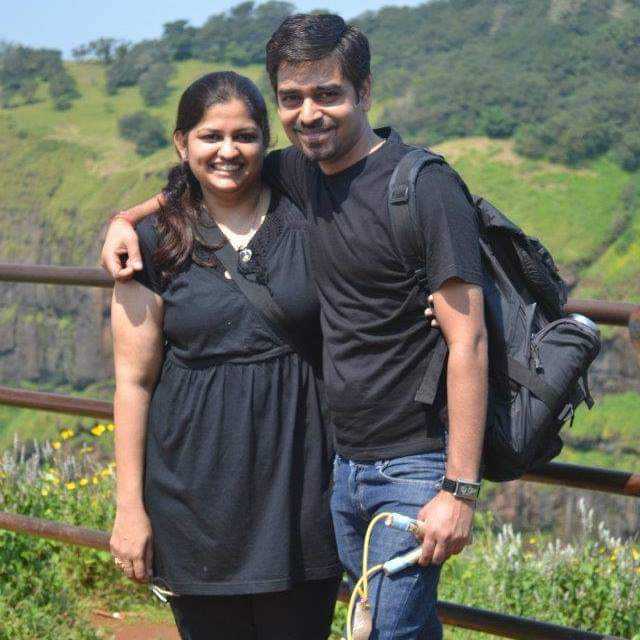
People were more health-conscious, hence preferred organic food. However, they couldn’t go out, so they needed doorstep delivery. And everyone was looking for options where there was a minimum contact of people. ‘Orders kept coming like crazy. The volume was five times more than usual. So Prateeksha would stay up all night and prepare the orders for us. And I would leave early in the morning to pick up the vegetables from the farms and come back only by 11-11:30 pm after delivering all the orders,’ said Prateek.
This boost gave them the capital they needed to run the business at this scale. And for the first time, Green and Grains made profits. Last year they raised revenues of Rs 60 Lakh. Prateek deployed this money to build technology that could help them in the long run.
Today, Green and Grain aggregates products from farmers from six states and serves more than 2000 families in Madhya Pradesh. They plan to take it to 20,000 families in the next twelve months. They now serve more than 250 products to their customers through home deliveries.
Soon they are planning to serve exotic fruits and spices from the north-eastern states of India, and they envisage taking Green and Grains Pan India in the next three years. ‘This journey was a growth journey not only for Green and Grains but for us as well. We have gone through ups and downs like never before, worked on the field, did home deliveries with no staff during the pandemic, went through the highest to our lowest points in life. But that’s what made us who we are today. We are so clear in our life right now,’ said Prateek and Prateeksha Sharma.

